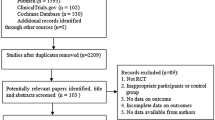Abstract
Tamoxifen is currently the adjuvant treatment of choice for postmenopausal women with hormone-sensitive breast cancer. However, in the treatment of postmenopausal women with advanced disease, the third-generation aromatase inhibitor anastrozole ('Arimidex') has been shown to be at least as effective as tamoxifen, and to be more effective than tamoxifen in patients with estrogen receptor-positive disease. Furthermore, anastrozole is well tolerated and is associated with fewer adverse reactions (such as thromboembolic events, vaginal bleeding, and endometrial cancer) compared with tamoxifen. A change in clinical practice has now emerged for the first-line treatment of postmenopausal advanced disease in patients, with tamoxifen becoming the second- or third-line choice for many clinicians. These data have raised questions about the optimal adjuvant treatment for postmenopausal women with early breast cancer.
The 'Arimidex', Tamoxifen, Alone or in Combination (ATAC) trial has compared the efficacy and safety of tamoxifen and anastrozole in the adjuvant treatment of postmenopausal women with early breast cancer. At 3 years' follow-up in the overall population, anastrozole demonstrated a significant benefit compared with tamoxifen for disease-free survival (DFS) (89.4% vs. 87.4%; p = 0.013), time to recurrence (hazard ratio = 0.79; p = 0.008), and contralateral breast cancers (odds ratio = 0.42; 95% confidence interval: 0.22–0.79; p = 0.007). Anastrozole produced improvements in quality of life similar to tamoxifen and was better tolerated for a number of predefined adverse events. Of course, a large body of evidence is available regarding the safety profile of tamoxifen and some feel that more data are needed from the ATAC trial to demonstrate that the early advantages of anastrozole over tamoxifen can be maintained in the longer term. However, a follow-up analysis at 47 months has confirmed that the tolerability profile and the absolute benefit of anastrozole were maintained over the extended follow-up period, demonstrating that the benefits of anastrozole are likely to be maintained over the long term. This review assesses these and other data from the ATAC trial and presents the arguments for and against whether 3 years' follow-up is sufficient to inform a change in clinical practice for the adjuvant treatment of postmenopausal women with early breast cancer.
Similar content being viewed by others
References
Brueggemeier RW: Aromatase, aromatase inhibitors, and breast cancer. Am J Ther 8: 333-344, 2001
Bonneterre J, Buzdar A, Nabholtz JM, Robertson JF, Thürlimann B, von Euler M, Sahmoud T, Webster A, Steinberg M, Arimidex Writing Committee, Investigators Committee Members: Anastrozole is superior to tamoxifen as first-line therapy in hormone receptor positive advanced breast carcinoma. Cancer 92: 2247-2258, 2001
The ATAC Trialists' Group: Anastrozole alone or in combination with tamoxifen versus tamoxifen alone for adjuvant treatment of postmenopausal women with early breast cancer: first results of the ATAC randomised trial. Lancet 359: 2131-2139, 2002
Early Breast Cancer Trialists' Collaborative Group: Tamoxifen for early breast cancer: an overview of the randomised trials. Lancet 351: 1451-1467, 1998
Buzdar A: The ATAC ('Arimidex', tamoxifen, alone or in combination) trial in postmenopausal women with early breast cancer-updated efficacy results based on a median follow-up of 47 months. Breast Cancer Res Treat 77: 295, 2003
Love RR, Cameron L, Connell BL, Leventhal H: Symptoms associated with tamoxifen treatment in postmenopausal women. Arch Int Med 151: 1842-1847, 1991
Sainsbury R: Beneficial side-effect profile of anastrozole compared with tamoxifen confirmed by additional 7 months of exposure data: a safety update from the ‘Arimidex’, tamoxifen, alone or in combination (ATAC) trial. Breast Cancer Res Treat 76(Suppl. 1): S156, 2002 (abstract 633)
Love RR, Mazess RB, Barden HS, Epstein S, Newcomb PA, Jordan VC, Carbone PP, DeMets DL: Effects of tamoxifen on bone mineral density in postmenopausal women with breast cancer. N Engl J Med 326: 852-856, 1992
Kristensen B, Ejlertsen B, Dalgaard P, Larsen L, Holmegaard SN, Transbol I, Mouridsen HT: Tamoxifen and bone metabolism in postmenopausal low-risk breast cancer patients: a randomized study. J Clin Oncol 12: 992-997, 1994
Gnant M, Hausmaninger H, Samonigg H, Mlineritsch B, Taucher S, Luschin-Ebengreuth G, Jakesz R: Changes in bone mineral density caused by anastrozole or tamoxifen in combination with goserelin (±zoledronate) as adjuvant treatment for hormone receptor-positive premenopausal breast cancer: results of a randomized multicenter trial. Breast Cancer Res Treat 76(Suppl. 1): S31, 2002 (abstract 12)
Winer EP, Hudis C, Burstein HJ, Chlebowski RT, Ingle JN, Edge SB, Mamounas EP, Gralow J, Goldstein LJ, Pritchard KI, Braun S, Cobleigh MA, Langer AS, Perotti J, Powles TJ, Whelan TJ, Browman GP: American Society of Clinical Oncology technology assessment on the use of aromatase inhibitors as adjuvant therapy for women with hormone receptor-positive breast cancer: status report 2002. J Clin Oncol 20: 3317-3327, 2002
Fallowfield L, Cella D: Assessing the quality of life (QOL) of postmenopausal (PM) women randomized into the ATAC ('Arimidex', tamoxifen, alone or in combination) adjuvant breast cancer (BC) trial. Proc Am Soc Clin Oncol 21: 40A, 2002 (abstract 159)
Author information
Authors and Affiliations
Rights and permissions
About this article
Cite this article
Aapro, M.S., Forbes, J.F. Three Years' Follow-up from the ATAC Trial is Sufficient to Change Clinical Practice: A Debate. Breast Cancer Res Treat 80 (Suppl 1), 3–11 (2003). https://doi.org/10.1023/A:1025455130476
Issue Date:
DOI: https://doi.org/10.1023/A:1025455130476




